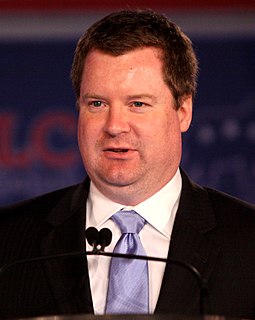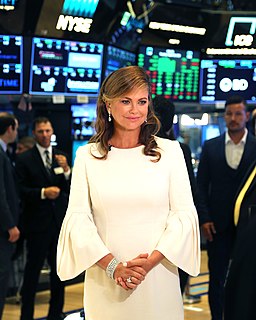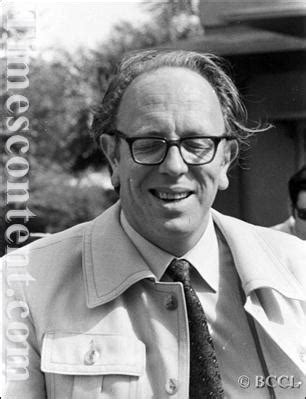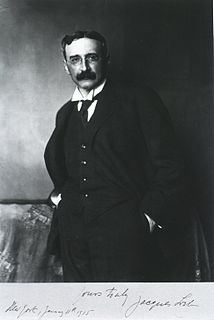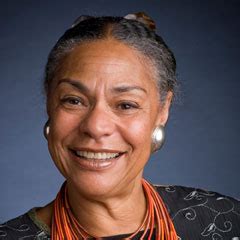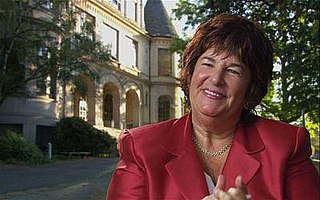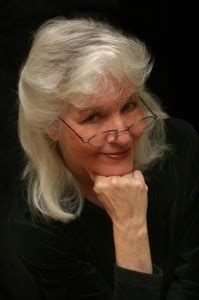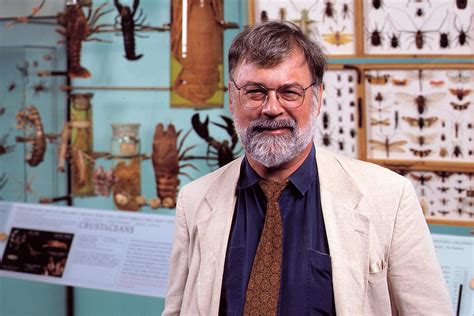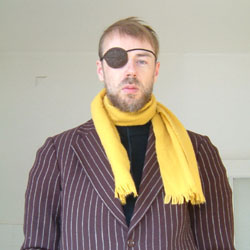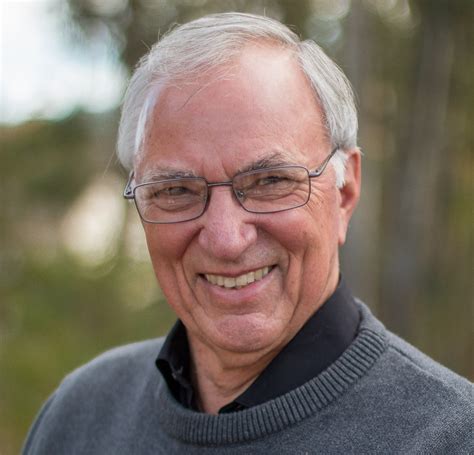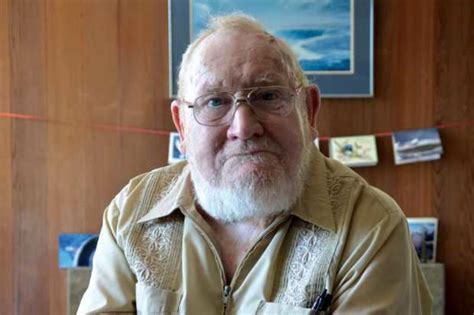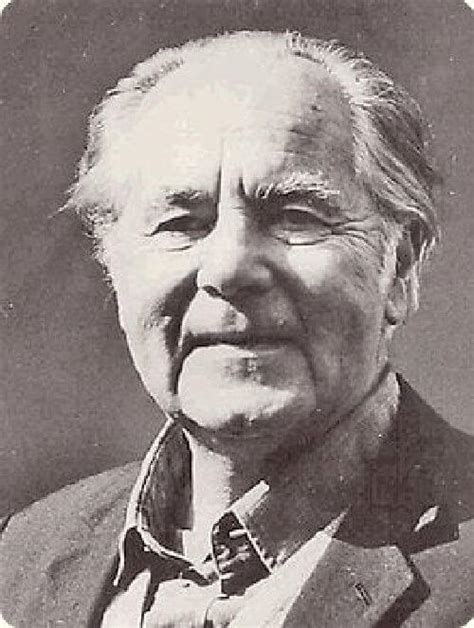Top 779 Biology Quotes & Sayings - Page 12
Explore popular Biology quotes.
Last updated on November 17, 2024.
When you look at biology, look at the natural world, the roles of a male and a female in society, and other animals, the male typically is the dominant role. The female, it’s not antithesis, or it’s not competing, it’s a complementary role. We as people in a smart society have lost the ability to have complementary relationships in nuclear families, and it’s tearing us apart.
I think of mythology as a function of biology; the energies of the body are the energies that move the imagination. These energies are the source, then, of mythological imagery; in a mythological organization of symbols, the conflicts between the different organic impulses within the body are resolved and harmonized. You might say mythology is a formula for the harmonization of the energies of life.
The existing and long-standing use of the word 'evolution' in our state's textbooks has not adversely affected Georgians' belief in the omnipotence of God as creator of the universe, There can be no incompatibility between Christian faith and proven facts concerning geology, biology, and astronomy. There is no need to teach that stars can fall out of the sky and land on a flat Earth in order to defend our religious faith.
Both in Britain and America, huge publicity has been given to stem cells, particularly embryonic stem cells, and the potential they offer. Of course, the study of stem cells is one of the most exciting areas in biology, but I think it is unlikely that embryonic stem cells are likely to be useful in healthcare for a long time.
I think there is a kind of laconic Australian leg-pulling sense of humor that is certainly in some of my stories, or is an element in some of my books, and that's probably a direct result of where I've grown up. But other than that I don't draw particularly on the Australian landscape or the Australian biology and so on. So I don't think there's anything you could point to and say is particularly Australian.
Even mistaken hypotheses and theories are of use in leading to discoveries. This remark is true in all the sciences. The alchemists founded chemistry by pursuing chimerical problems and theories which are false. In physical science, which is more advanced than biology, we might still cite men of science who make great discoveries by relying on false theories.
There are a whole other range of sciences that must deal with the narrative reconstruction of the inordinately complex events of history that can occur but once in their detailed glory. And for those kinds of sciences, be it cosmology, or evolutionary biology, or geology, or palaeontology, the experimental methods, simplification, quantification, prediction and repetition of the experimental sciences don't always work. You have to go with the narrative, the descriptive methods of what? Of historians.
When I was very young, biology, the diversity of life, was one of my main interests. I know there's this image people have that I'm this spoiled, cocky punk of an actor. Honestly, that's not who I am. I really care that so many species have been wiped out, like genocide of entire races. I believe in the divine right of all species to survive on this planet. So I decided I want to be active as an environmentalist. I learned. I asked experts. I got active.
When something like personal genomics or synthetic biology suddenly appears - it seems to suddenly appear - we might have been working on it for 30 years, but it seems to come out of nowhere. Then you need strategies for engaging a lot of people and thinking about where it will be going in the next few months or few years.
I used to be pro-choice."..."I was once pro-choice and the thing that changed my mind was, I read my husband's biology books, medical books, and what I learned . . . At the moment of conception, a life starts. And this life has its own unique set of DNA, which contains a blueprint for the whole genetic makeup. The sex is determined. We know there's a life because it's growing and changing.
Most people are excited about themselves. Personal genome will deliver for inexpensively something about science to which you can relate. Just like computers are becoming something to which you can relate. It should be even easier to relate to your own biology, and I hope that will be one of the ways we get broader literacy in science.
Biology designed the dance. Terror timed it. Dictated the rhythm with which their bodies answered each other. As though they already knew that for each tremor of pleasure they would pay with an equal measure of pain. As though they knew that how far they went would be measured against how far they would be taken.
This general tendency to eliminate, by means of unverifiable speculations, the limits of the categories nature presents to us is the inheritance of biology from The Origin of Species. To establish the continuity required by theory, historical arguments are invoked, even though historical evidence is lacking. Thus are engendered those fragile towers of hypothesis based on hypothesis, where fact and fiction intermingle in an inextricable confusion.
What disturbs or assures us about race has very little to do with blood or biology. Race is about how you use language, understand your heritage, interpret your history, identify with your kin, figure out what your meaning and worth to a society that places values on you beyond your control. And it's also about what people see you as - or take you to be.
The next decade will perhaps raise us a step above despair to a cleaner, clearer wisdom and biology cannot fail to help in this. As we become increasingly aware of the ethical problems raised by science and technology, the frontiers between the biological and social sciences are clearly of critical importance-in population density and problems of hunger, psychological stress, pollution of the air and water and exhaustion of irreplaceable resources.
Recent studies have considered the detection of a spaceship visiting our parish of the galaxy. In my opinion that last thought should bring a blush to every human cheek... Fecklessness might be the main theme of the aliens' report on the new-found source of radio pollution ... that emanates from beings who have mastered a lot of physics, chemistry and biology and yet let their children starve-while all around their planet the energy of their mother star runs to waste in a desert of space.
Everything we do understand about the universe - the periodic table of elements, Einstein's laws, Newton's laws, all of chemistry, all of biology - that's 4 percent of the universe. We got to the moon on the 4 percent we do understand. We landed on Mars on the 4 percent we do understand. So the day we crack the nut of the rest of that 95 percent... Oh my gosh.
The fundamental reason why carbon dioxide in the atmosphere is critically important to biology is that there is so little of it. A field of corn growing in full sunlight in the middle of the day uses up all the carbon dioxide within a meter of the ground in about five minutes. If the air were not constantly stirred by convection currents and winds, the corn would stop growing.
The foundations of population genetics were laid chiefly by mathematical deduction from basic premises contained in the works of Mendel and Morgan and their followers. Haldane, Wright, and Fisher are the pioneers of population genetics whose main research equipment was paper and ink rather than microscopes, experimental fields, Drosophila bottles, or mouse cages. Theirs is theoretical biology at its best, and it has provided a guiding light for rigorous quantitative experimentation and observation.
My dad got a job as a professor at Virginia Commonwealth University. He teaches biology and genetics. My dad has been obsessed with science his whole life. Both my paternal grandparents were illiterate bamboo farmers, so he really worked his way up and then got a Ph.D., full ride and everything, from universities in America.
Through the discovery of Buchner, Biology was relieved of another fragment of mysticism. The splitting up of sugar into CO2 and alcohol is no more the effect of a 'vital principle' than the splitting up of cane sugar by invertase. The history of this problem is instructive, as it warns us against considering problems as beyond our reach because they have not yet found their solution.
The student of biology is often struck with the feeling that historians, when dealing with the rise and fall of nations, do not generally view the phenomena from a sufficiently high biological standpoint. To me, at least, they seem to attach too much importance to individual rulers and soldiers, and to particular wars, policies, religions, and customs; while at the same time they make little attempt to extract the fundamental causes of national success or failure.
Views of women, on one side, as inwardly directed toward home and family and notions of men, on the other, as outwardly striving toward fame and fortune have resounded throughout literature and in the texts of history, biology, and psychology until they seem uncontestable. Such dichotomous views defy the complexities of individuals and stifle the potential for people to reveal different dimensions of themselves in various settings.
The fundamental biological variant is DNA. That is why Mendel's definition of the gene as the unvarying bearer of hereditary traits, its chemical identification by Avery (confirmed by Hershey), and the elucidation by Watson and Crick of the structural basis of its replicative invariance, are without any doubt the most important discoveries ever made in biology. To this must be added the theory of natural selection, whose certainty and full significance were established only by those later theories.
People who lose children have their hearts warped into weird shapes. Some try to deny it has happened. Some pretend it hasn't. Losing friends or parents is not the same. To lose a child is beyond comprehension. It defies biology. It contradicts the natural order of history and genealogy. It derails common sense. It violates time. It creates a huge, black, bottomless hole that swallows all hope.
My research has shown me that when emotions are expressed-which is to say that the biochemicals that are the substrate of emotion are flowing freely-all systems are united and made whole. When emotions are repressed, denied, not allowed to be whatever they may be, our network pathways get blocked, stopping the flow of the vital feel-good, unifying chemicals that run both our biology and our behavior.
However diligent she may be, however dedicated, no mother can escape the larger influences of culture, biology, fate . . . until we can actually live in a society where mothers and children genuinely matter, ours is an essentially powerless responsibility. Mothers carry out most of the work orders, but most of the rules governing our lives are shaped by outside influences.
Paleontologist Niles Eldredge, a prominent evolutionist, said: 'The doubt that has infiltrated the previous, smugly confident certitude of evolutionary biology’s last twenty years has inflamed passions.' He spoke of the 'lack of total agreement even within the warring camps,' and added, 'things really are in an uproar these days . . . Sometimes it seems as though there are as many variations on each [evolutionary] theme as there are individual biologists.'
Mood reflects the biology of the brain. How you feel is affected by the chemicals in the brain, and these are the same chemicals that form the basis of mood-altering drugs. You may use yoga, meditation, cognitive behaviour therapy (CBT) or exercise to alter your mood, or revert to healthy eating, regular exercise and getting enough sleep.
That the role of size has been to some degree neglected in biology may lie in its simplicity. Size may be a property that affects all of life, but it seems pallid compared to the matter which makes up life. Yet size is an aspect of the living that plays a remarkable, overreaching role that affects life's matter in all its aspects.
...I think there's only one [thing] that anybody teaches, and this is character. And I think that whether you are teaching history, math, or biology, or music, what you are really doing is, you are helping to shape the character of that person who is your student... Music is such a wonderful teaching tool, because while you are developing musical skills, that student can learn a lot about discipline [and] cooperation.
Consciousness, when it's unburdened by the body, is something that's ecstatic; we use the mind to watch the mind, and that's the meta-nature of our consciousness; we know that we know that we know, and that's such a delicious feeling, but when it's unburdened by biology and entropy, it becomes more than delicious: it becomes magical.
As a general rule of biology, migratory species are less 'aggressive' than sedentary ones. There is one obvious reason why this should be so. The migration itself, like the pilgrimage, is the hard journey: a 'leveller' on which the 'fit' survive and stragglers fall by the wayside. The journey thus pre-empts the need for hierarchies and shows of dominance. The 'dictators' of the animal kingdom are those who live in an ambience of plenty. The anarchists, as always, are the 'gentlemen of the road'.
Consciousness, when its unburdened by the body, is something thats ecstatic; we use the mind to watch the mind, and thats the meta-nature of our consciousness; we know that we know that we know, and thats such a delicious feeling, but when its unburdened by biology and entropy, it becomes more than delicious: it becomes magical.
The theory of natural selection is the centerpiece of The Origin of Species and of evolutionary theory. It is this theory that accounts for the adaptations of organisms, those innumerable features that so wonderfully equip them for survival and reproduction; it is this theory that accounts for the divergence of species from common ancestors and thus for the endless diversity of life. Natural selection is a simple concept, but it is perhaps the most important idea in biology.
The advances of biology during the past 20 years have been breathtaking, particularly in cracking the mystery of heredity. Nevertheless, the greatest and most difficult problems still lie ahead. The discoveries of the 1970's about the chemical roots of memory in nerve cells or the basis of learning, about the complex behavior of man and animals, the nature of growth, development, disease and aging will be at least as fundamental and spectacular as those of the recent past.
If it is true that an influx of doubt and uncertainty actually marks periods of healthy growth in a science, then evolutionary biology is flourishing today as it seldom has flourished in the past. For biologists collectively are less agreed upon the details of evolutionary mechanics than they were a scant decade ago. Superficially, it seems as if we know less about evolution than we did in 1959, the centennial year of Darwin's on the Origin of Species.
I'll say that this is probably the best time for poetry since the T'ang dynasty. All the rest of the world is going to school on American poetry in the twentieth century, from Ezra Pound to W. S. Merwin, and for very good reason. We have soaked up influence in the last century like a sponge. It's cross-pollination, first law of biology, that the more variety you have the more health you have.
Metaphysical ghosts cannot be killed, because they cannot be touched; but they may be dispelled by dispelling the twilight in which shadows and solidities are easily confounded. The Vital Principle is an entity of this ghostly kind; and although the daylight has dissipated it, and positive Biology is no longer vexed with its visitations, it nevertheless reappears in another shape in the shadowy region of mystery which surrounds biological and all other questions.
When a scientist considers all high-tech mental machinery needed to arrange words into ordinary sentences, prescriptive rules are, at best, inconsequential little decorations. The very fact that they have to be drilled shows that they are alien to the natural workings of the language system. One can choose to obsess over prescriptive rules, but they have no more to do with language than the criteria for judging cats at a cat show have to do with mammalian biology.
It could be that at some earlier time, somewhere in the universe, a civilization evolved by probably some kind of Darwinian means to a very, very high level of technology- and designed a form of life that they seeded onto perhaps this planet. And I suppose it's possible that you might find evidence for that if you look at the details of biochemistry, molecular biology, you might find a signature of some sort of designer.
If the students don't want to learn about evolution, they shouldn't be in the course. A biology course that teaches creationism is not a science course, it's a religion course. So the students demanding that creationism be given credence in that course are out of line and are denying the academic freedom of the professor. They are calling into question the scientific basis of the material that's being presented. And students are not in a position to do that.
When you tell filthy jokes as if they were all really serious, and happening all in the life of one family, it becomes a farcical situation. Imagine if you had a script that was imposed on your life - we all do in a certain way, from society, or family, the need to make money, biology, death. But you will have a certain latitude, or freedom, to read the script in your own way.
I have been a biologist for a long time, and I hope I never stop getting shivers in my spine when I think about the beauty of how we come to know things in biology. Biologists make predictions, then they go out into the field or the lab to see if their predictions hold up. When hundreds of predictions of this sort are fulfilled, a theory reaches the point where it becomes certain, at least on a broad level. And that is where we are with evolution.
Much of the geographical work of the past hundred years... has either explicitly or implicitly taken its inspiration from biology, and in particular Darwin. Many of the original Darwinians, such as Hooker, Wallace, Huxley, Bates, and Darwin himself, were actively concerned with geographical exploration, and it was largely facts of geographical distribution in a spatial setting which provided Darwin with the germ of his theory.
The scientific method," Thomas Henry Huxley once wrote, "is nothing but the normal working of the human mind." That is to say, when the mind is working; that is to say further, when it is engaged in correcting its mistakes. Taking this point of view, we may conclude that science is not physics, biology, or chemistry — is not even a ”subject " — but a moral imperative drawn from a larger narrative whose purpose is to give perspective, balance, and humility to learning.
Humans have continued to evolve quite a lot over the past ten thousand years, and certainly over 100 thousand. Sure, our biology affects our behavior. But it's unlikely that humans' early evolution is deeply relevant to contemporary psychological questions about dating or the willpower to complete a dissertation.
Scientific education for the masses will do little good, and probably a lot of harm, if it simply boils down to more physics, more chemistry, more biology, etc to the detriment of literature and history. Its probable effect on the average human being would be to narrow the range of his thoughts and make him more than ever contemptuous of such knowledge as he did not possess.
A new vision and understanding of something demands a new way of talking about it, for the old terminology gets in the way of this effort. Stubbornly entrenched behind the words coined by a particular conceptual orientation are its secrete prejudices. Any attempt to open out an adequately human vista onto the phenomena of undisturbed existence must include a critique of the most important idea of traditional biology, physiology, and psychology.
Excellent teachers showered on to us like meteors: Biology teachers holding up human brains, English teachers inspiring us with a personal ideological fierceness about Tolstoy and Plato, Art teachers leading us through the slums of Boston, then back to the easel to hurl public school gouache with social awareness and fury.
What does seem to me poisonous, what breeds a type of patriotism that is pernicious if it lasts but not likely to last long in an educated adult, is the perfectly serious indoctrination of the young in knowably false or biased history - the heroic legend drably disguised as text-book fact. With this creeps in the tacit assumption that other nations have not equally their heroes; perhaps even the belief - surely it is very bad biology - that we can literally 'inherit' tradition.
